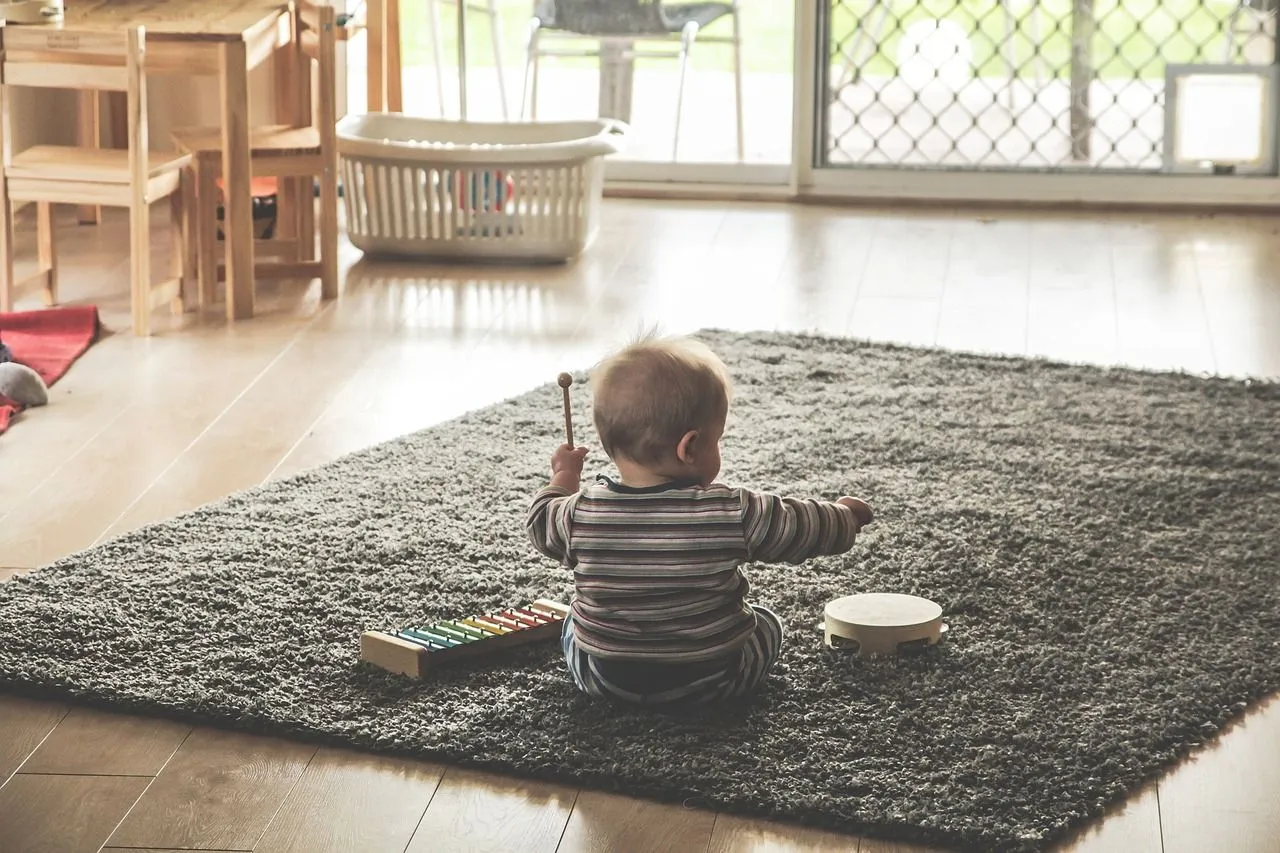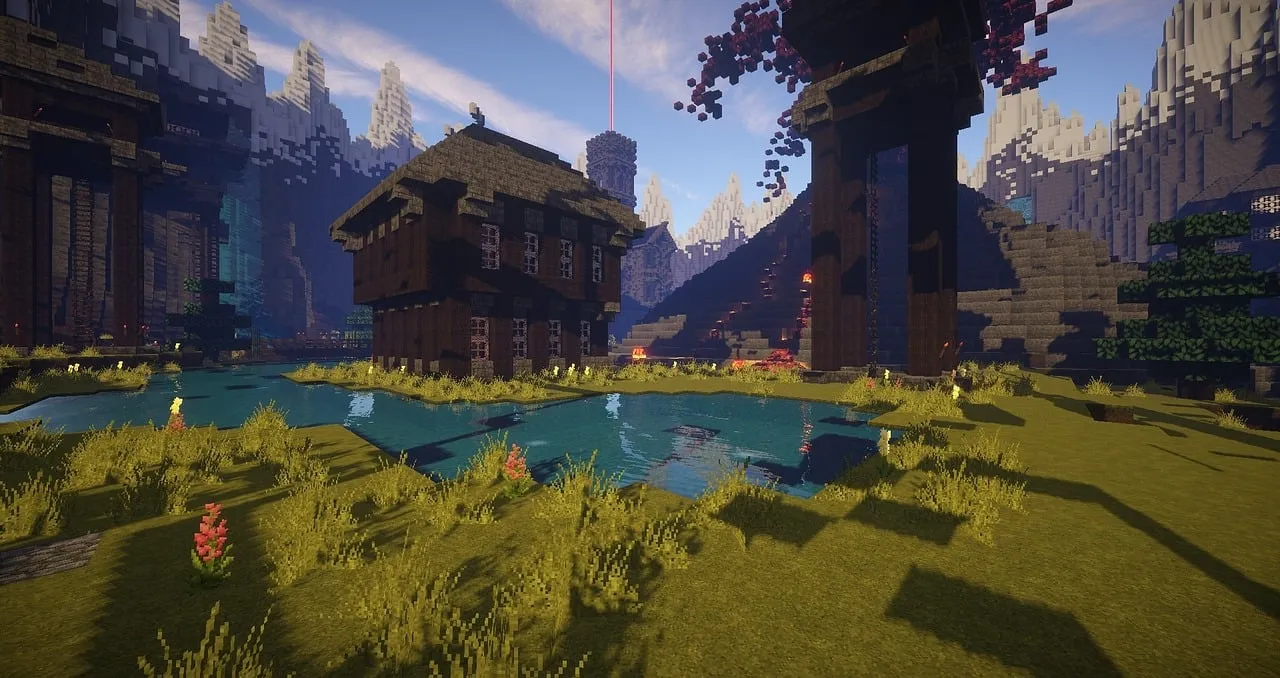

Un claro ejemplo es el ajedrez, un juego estratégico que fomenta el razonamiento lógico, la memoria y la capacidad de anticipación. Los niños que practican ajedrez desde temprana edad suelen mejorar su concentración y su habilidad para resolver problemas matemáticos. Esto es posible dado el análisis de múltiples posibilidades antes de tomar una decisión. Este juego no solo entretiene, sino que también enseña paciencia, planificación y pensamiento crítico. Todas estas son habilidades claves para el aprendizaje académico y la vida cotidiana. Recuerdo muchos momentos de mi infancia donde disfrutaba inmensamente de los juegos de ajedrez con mis abuelos, es por ello que atesoro hermosos recuerdos cada vez que hablo sobre este. Este hábito de mi infancia me permitió tener una mente más abierta en la solución de problemas de mi día a día y me ha permitido enfrentar la vida con una mejor actitud.

Otro juego tradicional con grandes beneficios cognitivos son los rompecabezas. Al analizar las piezas y tratar de colocarlas en su correcta posición, los niños ejercitan su percepción visual, su memoria espacial y su capacidad de asociación. Además, aprenden a ser persistentes, pues deben intentar repetidas veces hasta lograr el objetivo y poder contemplar el resultado de su atención y estudio. Este tipo de juegos también estimula la creatividad, ya que los niños imaginan el resultado final y buscan formas de alcanzarlo para así fortalecer su pensamiento abstracto.

Los juegos de roles, como "las casitas" o "jugar a los doctores", también tienen un impacto significativo en el desarrollo cognitivo en una temprana edad. A través de la imitación de situaciones reales, los niños mejoran su lenguaje, su empatía y su comprensión del mundo en que vivimos. Estos juegos fomentan la creatividad y la resolución de conflictos, ya que los pequeños deben improvisar diálogos y tomar decisiones dentro de un contexto simulado. Además, deben de dar continuidad a una situación específica y resolver los conflictos que ocurran en ella. Todo ello, fortalece su percepción general de la situación y la gran gama de soluciones para mantener la autenticidad de la misma.
Por otro lado, los juegos de construcción, como los bloques de Lego, promueven el desarrollo de habilidades motoras finas y el razonamiento espacial. Los niños aprenden sobre equilibrio, simetría y geometría mientras crean estructuras. Esto posibilita una mayor comprensión de conceptos matemáticos y científicos. Además, estos juegos estimulan la imaginación, permitiéndoles diseñar sus propias creaciones y solucionar problemas cuando algo no sale como esperaban, siendo así una alternativa perfecta para aumentar la creatividad y lógica en la primera infancia.

Los juegos grupales, como "las escondidas" o "la lleva", también contribuyen al desarrollo cognitivo al requerir estrategia, cooperación y toma de decisiones rápidas. Estos juegos mejoran la atención, la velocidad de procesamiento mental y la capacidad de adaptación a reglas cambiantes. Además, al interactuar con otros niños, se fortalecen las habilidades sociales y la inteligencia emocional, los cuales son aspectos clave para un desarrollo integral del infante.
Incluso los videojuegos, cuando se usan con moderación, pueden tener beneficios cognitivos. Juegos como Minecraft estimulan la creatividad y el pensamiento lógico, mientras que títulos de estrategia como Age of Empires enseñan gestión de recursos y planificación a largo plazo. Sin embargo, es importante equilibrar su uso con actividades físicas y sociales para evitar efectos negativos como el sedentarismo o el aislamiento. Estos se pueden utilizar con responsabilidad y límites, respetando siempre los límites de edad para utilizar estos dispositivos y el tiempo en pantalla adecuado en casos excepcionales.


Los juegos infantiles, ya sean tradicionales o modernos, son mucho más que simples pasatiempos. Son herramientas poderosas que moldean el cerebro, preparando a los niños para enfrentar desafíos académicos y sociales. Al fomentar el juego en la infancia, no solo estamos promoviendo la diversión, sino también sentando las bases para un desarrollo cognitivo saludable y una mente más ágil y creativa en el futuro.
Gracias por leer mi post//Thanks for reading my post

Las fotos fueron tomadas de Pixabay//Pictures from Pixabay
https://pixabay.com/photos/desert-children-sand-dune-playing-7008952/
https://pixabay.com/photos/music-kids-children-play-xylophone-818459/
https://pixabay.com/photos/game-chess-board-chess-board-5960731/
https://pixabay.com/photos/lego-star-wars-toys-stormtroopers-2539844/
https://pixabay.com/illustrations/minecraft-mountain-video-game-655158/
https://pixabay.com/illustrations/minecraft-video-game-blocks-block-1106252/
https://pixabay.com/photos/puzzle-pieces-puzzle-share-game-7696621/
Translated by DeepL.com(free version)
English Version
Since ancient times, games have played a fundamental role in children's lives, not only as a form of entertainment, but also as essential tools for their cognitive development. Through play, children explore the world and the elements in it, solve problems, develop social skills and strengthen their logical thinking in every context. Different types of games, from the traditional to the most modern, stimulate different areas of the brain, thus allowing neuronal and intellectual growth in the little ones of the house.

A clear example is chess, a strategic game that promotes logical reasoning, memory and anticipation skills. Children who practice chess from an early age tend to improve their concentration and their ability to solve mathematical problems. This is possible due to the analysis of multiple possibilities before making a decision. This game not only entertains, but also teaches patience, planning and critical thinking. These are all key skills for academic learning and everyday life. I remember many moments from my childhood where I enjoyed immensely playing chess with my grandparents, that is why I treasure beautiful memories every time I talk about it. This habit from my childhood allowed me to have a more open mind in my day to day problem solving and has allowed me to face life with a better attitude.

Another traditional game with great cognitive benefits are puzzles. By analyzing the pieces and trying to place them in their correct position, children exercise their visual perception, their spatial memory and their ability to associate. In addition, they learn to be persistent, as they must try repeatedly until they achieve the objective and can see the result of their attention and study. This type of games also stimulates creativity, since children imagine the final result and look for ways to achieve it in order to strengthen their abstract thinking.

Role-playing games, such as “playing house” or “playing doctor,” also have a significant impact on cognitive development at an early age. Through imitation of real situations, children improve their language, empathy and understanding of the world we live in. These games encourage creativity and conflict resolution, as children must improvise dialogues and make decisions within a simulated context. In addition, they must give continuity to a specific situation and resolve the conflicts that occur in it. All of this strengthens their general perception of the situation and the wide range of solutions to maintain the authenticity of the situation.
On the other hand, building games, such as Lego blocks, promote the development of fine motor skills and spatial reasoning. Children learn about balance, symmetry and geometry while creating structures. This makes it possible to a better understanding of mathematical and scientific concepts. In addition, these games stimulate the imagination, allowing them to design their own creations and solve problems when something does not go as expected, thus being a perfect alternative to increase creativity and logic in early childhood.

Group games, such as “hide and seek” or “tag,” also contribute to cognitive development by requiring strategy, cooperation and quick decision-making. These games improve attention, mental processing speed and the ability to adapt to changing rules. In addition, by interacting with other children, social skills and emotional intelligence are strengthened, which are key aspects for a child's integral development.
Even video games, when used in moderation, can have cognitive benefits. Games like Minecraft stimulate creativity and logical thinking, while strategy titles like Age of Empires teach resource management and long-term planning. However, it is important to balance their use with physical and social activities to avoid negative effects such as a sedentary lifestyle or isolation. These can be used with responsibility and limits, always respecting the age limits for using these devices and appropriate screen time in exceptional cases.


Children's games, whether traditional or modern, are much more than simple pastimes. They are powerful tools that shape the brain, preparing children to face academic and social challenges. By encouraging play in childhood, we are not only promoting fun, but also laying the foundation for healthy cognitive development and a more agile and creative mind in the future.
Gracias por leer mi post//Thanks for reading my post

Las fotos fueron tomadas de Pixabay//Pictures from Pixabay
https://pixabay.com/photos/desert-children-sand-dune-playing-7008952/
https://pixabay.com/photos/music-kids-children-play-xylophone-818459/
https://pixabay.com/photos/game-chess-board-chess-board-5960731/
https://pixabay.com/photos/lego-star-wars-toys-stormtroopers-2539844/
https://pixabay.com/illustrations/minecraft-mountain-video-game-655158/
https://pixabay.com/illustrations/minecraft-video-game-blocks-block-1106252/
https://pixabay.com/photos/puzzle-pieces-puzzle-share-game-7696621/
Translated by DeepL.com(free version)